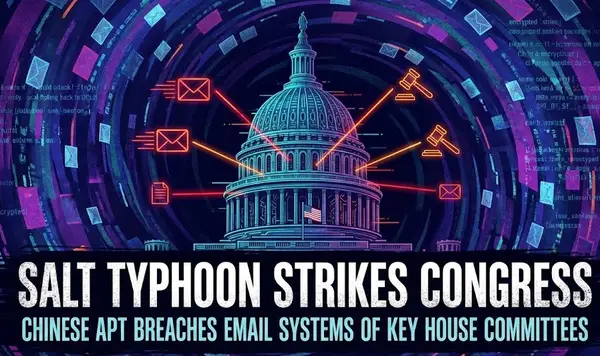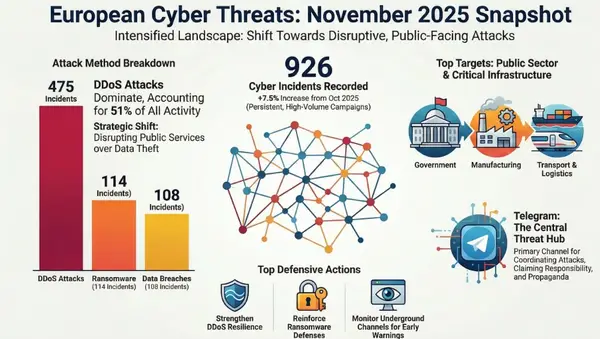Unpacking the Perils: Why Lithuania's 2025 Security Threats Demand Your Attention

At Breached., we're dedicated to bringing you critical insights into the evolving landscape of global security. In a world rife with uncertainty, understanding the specific threats nations face is paramount. That's why we've delved deep into Lithuania's "National Threat Assessment 2025", a crucial document that lays bare the primary external state actors casting shadows over the country's future. Our new podcast, "Lithuania's 2025 Security Under Threat," unpacks these complex issues, and this article serves as your essential guide to the dangers identified and why they should be on your radar.
The Unholy Trinity: Russia, Belarus, and China as Lithuania's Primary Concerns
The "National Threat Assessment 2025" unequivocally points to Russia, Belarus, and China as the most significant external state actors jeopardizing Lithuania's national security. This isn't mere speculation; it's a comprehensive evaluation based on intelligence analysis. Our podcast meticulously dissects the specific nature of the threats emanating from each of these actors, drawing directly from the assessment's findings.
Russia: An Increasingly Aggressive Actor in a Grey Zone
The assessment paints a stark picture of Russia as an "increasingly aggressive actor". This isn't a recent development; the report highlights how Russia's aggressive rhetoric has tragically morphed into a full-scale war against Ukraine, marked by abhorrent "crimes against humanity and sabotage against the West".
- The Lithuanian assessment emphasizes that Russia's ruling regime likely views its relationship with the West as existing in a "grey zone between war and peace". This means they aren't solely relying on diplomatic pressure but are actively employing "violent actions against states that do not align with its interests".
- Of particular concern is Russia's persistent "efforts to influence Western societies, increase distrust in state institutions, and weaken support for Ukraine". This multi-pronged approach seeks to destabilize the West from within.
- The report details Russia's relentless "ongoing efforts to rebuild its spy network in Lithuania and allied countries". This highlights the constant threat of espionage and infiltration.
- Furthermore, Russia is actively involved in "sabotage operations targeting infrastructure in Lithuania and other European countries". These actions, which have escalated, are designed to cause disruption and undermine support for Ukraine. The assessment notes that these operations, which began with defacing monuments, became more resource-intensive in 2024 and are carried out by individuals often recruited on social media, sometimes unknowingly working for Russian intelligence.
- Lithuania is also a target of Russia's "attempts to discredit [it] through propaganda". This includes accusations of historical revisionism, supporting Nazi ideology, and inciting Russophobia. The aim is to tarnish Lithuania's international image and justify Russia's geopolitical interests. This propaganda is disseminated through state-controlled media, social networks, and pro-Russian websites, with Telegram being a particularly active platform.
- While Russia's military capabilities in the Kaliningrad Region have been somewhat strained by the war in Ukraine, they "remain sufficient to disrupt NATO's actions in the Baltic Sea region in the event of a conflict". Their naval and air components, even if less involved in Ukraine, can still project power.
- Finally, Russia's "updated nuclear doctrine and nuclear messaging are used to influence the decision-making of other states". This nuclear coercion aims to deter Western support for Ukraine and protect Russian interests. The updated doctrine expands the conditions under which Russia might use nuclear weapons, creating strategic uncertainty.
- The Russian regime is also increasing "public and online surveillance". This includes establishing centralized video surveillance with facial recognition and using AI tools to monitor digital content, raising concerns about the suppression of dissent.
Belarus: Progressing Dependence and Malicious Intent
The assessment identifies Belarus as a state with "progressing dependence on Russia". Under Lukashenka's authoritarian rule, the regime has engaged in severe repression and orchestrated an "illegal migration crisis against Lithuania, Poland, and Latvia".
- Following the "rigged 2025 presidential election, Lukashenka has consolidated his power and will seek recognition as the legitimate leader".
- Belarusian intelligence services are actively working against Lithuania. This includes "exploiting the Belarusian diaspora in Lithuania to establish intelligence positions", "targeting Belarusian companies with subsidiaries in Lithuania", and "threatening and illegally detaining Lithuanian citizens visiting Belarus". These actions are intended to pressure Lithuania to reconsider its policies towards Belarus and reinforce a narrative of a hostile external environment.
- Belarus is providing "increasing support for the Kremlin's international policy initiatives and aligns its foreign policy to be subservient to Russia's". This includes advocating for a new Eurasian security architecture and aligning its military doctrine to be openly hostile towards the West, echoing Russia's views on the Ukraine war and NATO.
- The "unrestrained use of Belarusian airspace by the Russian Armed Forces also poses a risk to neighbouring NATO countries". Incidents like the crash of a Russian drone in Latvia after crossing Belarus highlight this danger.
China: An Increasingly Hostile Supporter of Russia's Ambitions
The assessment highlights China as an "increasingly hostile actor in recent years". It has become a "main supporter of Russia's aggression against Ukraine".
- China provides Russia with essential dual-use equipment and technologies, enabling Russia to continue the war. This support is driven by China's strategic calculation that the "Putin regime should not lose the war and that the conflict aligns with China's interests by challenging the West". The war in Ukraine drains Western resources, fuels internal divisions, and forces Russia to accept cooperation terms more favorable to China.
- China is also actively engaged in cyber espionage and remote recruitment. Their cyber capabilities are used to target Lithuanian state institutions.
- Despite strained bilateral relations, China likely remains highly interested in Lithuania's scientific achievements, particularly in lasers, semiconductors, and biotechnology. The assessment suggests China may attempt to secure access through "espionage and cooperation with Western academia and Lithuanian research institutions". Chinese universities with ties to the defense industry may seek stronger scientific cooperation with Lithuania, potentially leading to espionage opportunities.
Why This Matters: Tuning into "Lithuania's 2025 Security Under Threat"
The insights from Lithuania's "National Threat Assessment 2025" are not just relevant to Lithuania. They offer a crucial lens through which to understand the broader geopolitical landscape and the interconnectedness of global security challenges. The strategies and tactics employed by Russia, Belarus, and China in targeting Lithuania provide valuable lessons for other nations and organizations.
Our podcast, "Lithuania's 2025 Security Under Threat," dives deeper into these threats, providing expert analysis and context. By listening, you'll gain a comprehensive understanding of:
- The specific methods Russia uses for espionage, sabotage, and propaganda.
- The implications of Belarus's increasing subservience to Russia.
- China's strategic motivations in supporting Russia and its interest in Western technologies.
- The potential impact of these threats on Lithuania and the wider European security architecture.
Don't remain in the dark. Knowledge is the first line of defense.
Listen to "Lithuania's 2025 Security Under Threat" on Breached. [Insert Link to Podcast Here] to gain critical insights into the complex web of threats facing Lithuania in 2025. Understanding these perils is the first step towards building resilience and safeguarding our collective security.
Keywords: Lithuania, national security, threats, 2025, Russia, Belarus, China, espionage, sabotage, propaganda, cyber security, podcast, Breached., geopolitical risk, security assessment, international relations, Ukraine war, NATO, Kaliningrad, Lukashenka, authoritarianism, scientific espionage, disinformation.





